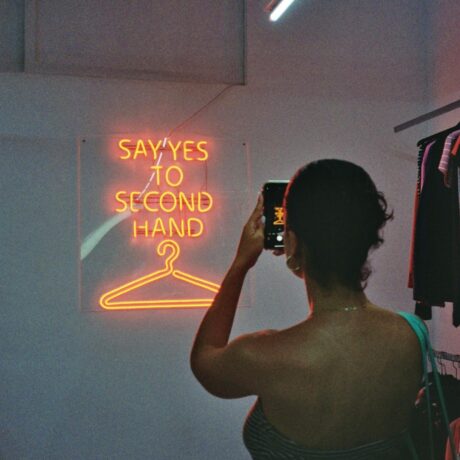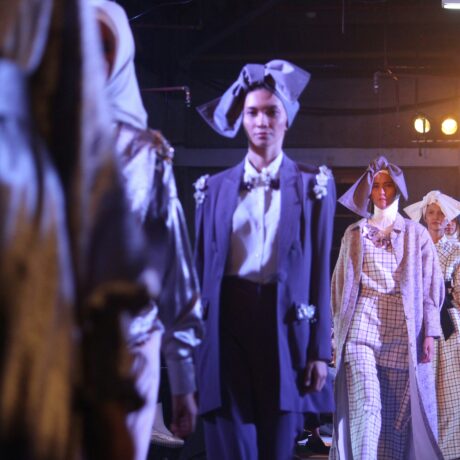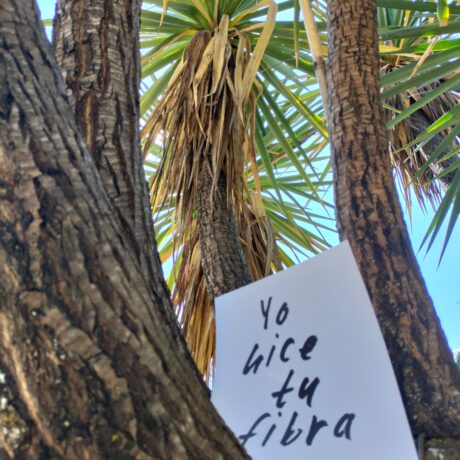Why Names Matter
When the seeds of our journey were planted in 2011, we were only scratching the surface of what it meant to educate women and create economic opportunities. As the years passed on, we found ourselves continually connected to our students until they no longer became a name in our logbooks but grew into extended members of our family.
This made many of our board members rethink their own shopping habits.
Most of the clothing that we purchase is extremely impersonal. We have the label from some large company, or maybe a smaller designer, and then the government mandated country of production. We know that our clothes are made in India, Pakistan, Bangladesh, The Philippines, or maybe even Guatemala. These labels are amazing for one reason, they make the struggle of so many women, teenagers, and children invisible.
If we knew that Jyoti in India sewed this sundress, she only made $.02 from the construction, and she walks 2 km a day to her one room steel house in the slums where she struggles to feed her 4 children bread and rice, and certainly can’t pay for her children’s medical care when they became sick from contaminated water, would we think twice about buying that sundress?
Cheap clothing often comes with a price and while we love that low sticker, the price is high for those involved in the manufacturing process, often being paid with their life.
The first time I worked with a fair trade organization in Northern Uganda that labeled their clothing with the name of the worker, I thought it was cute. As I got to know the women on a one on one basis and saw how the company’s mentorship and coaching programs created a trickle down effect in economic sustainability, that label took on a new meaning. That name was no longer pen on fabric, it was life. It was a face. It was a struggle that I saw first hand turn into a victory. It was happiness, it was freedom, it was empowerment.
When we planted the seeds for our own endeavor, I knew that I wanted our pieces to be connected back to the hands that sewed them. I wanted someone to not only feel like they were supporting an idea, but supporting an upward projectory that could be specifically targeted. I wanted our friends to see the names and know the story and face associated with that piece.
Many of our women come to us with a third grade education, trying to step out prostitution, and making under $10 a month. Many of our initial students had no idea how to hold a pencil. Instead of teaching them to sew, we taught them how to write their names. It was an eye opening experience and really cemented just how far we had to go to make our end goal a reality.
That end goal is to create a fair trade manufacturing center that is sustainable and driven through successful program graduates. We want to be able to manufacture clothing and accessories for our own private line as well as small, medium, and large designers and companies, proving that fashion can be affordably manufactured without risking lives and freedom. Our women sing while they work and study, they laugh, they teach each other, and most importantly, they feel like they are respected.
We thought this would be our three-year goal but we’ve learned to adapt and work with the flow of our students to teach the proper skills and lay the foundation. Often times you aren’t just teaching skills but also battling low self-esteem, patriarchal and tribal influence, and low education levels where logical reasoning is not taught. Breaking down these barriers is challenging, it’s frustrating, and it’s beautiful.
It’s now a part of our next three-year plan with the goal to open the doors on the manufacturing center by Autumn 2017.
It truly warms our hearts to see the movement growing and taking shape. Our mantra is “Build Something Bigger Than Yourself” and we truly believe that “Together We Can”. We can what? We can do anything, be anything, accomplish anything, change anything, impact anything.
So what can we do together? We’re always open to discussing ideas and goals with likeminded people. Please feel free to contact us on our website, www.thecommonthreadcollective.org.
We’re all in this together.









